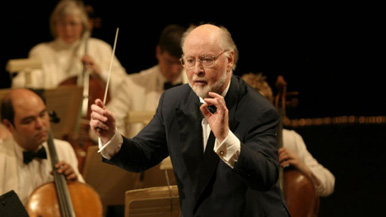|
|
Oscar 2012: Settling the ScoreBy Tom HousemanDecember 30, 2011
In 1999, the categories of Best Dramatic Score and Best Musical/Comedy Score were combined into one category, “Best Achievement in Music Written for Motion Pictures, Original Score.” Over a seven year span between 1999 and 2005, only eight never-before-nominated composers received their first nomination. Over that same span, John Williams was nominated eight times, Thomas Newman was nominated four times, and Gabriel Yared and James Horner were each nominated twice. 2005 was an anomaly, with three of the nominees earning their first nomination, but the other two nominees were both John Williams. However, once a composer does score their first nomination, they have magically transformed from outsider to insider, and a second nomination is likely to follow. Between 2001 and 2008, ten composers scored their first nomination, and seven of them are now multiple-time nominees in this category. So what does it take to get over that hump of scoring a first nomination in this category? Usually it takes something pretty special, a score so memorable or extraordinary that the composers can't help but overlook it. Seven of the last twelve Best Original Score winners have been first time nominees, usually unconventional choices who composed scores that could not be denied. These run the gamut from Tan Dun's score for Crouching Tiger Hidden Dragon, to Gustavo Santaolalla's iconic guitar strumming in Brokeback Mountain, to A.R. Rahman's Indian melodies in Slumdog Millionaire, to Trent Reznor and Atticus Ross's haunting strains in The Social Network. Often a composer can spend years building a reputation before finally getting their first nomination (Howard Shore or Dario Marianelli, for example), but if an up-and-comer really wows everyone, they are hard to ignore. Not impossible, though, as Johnny Greenwood (There Will Be Blood) and Clint Mansell (Requiem for a Dream) can attest.
|

|
|
|

|
Thursday, October 31, 2024
© 2024 Box Office Prophets, a division of One Of Us, Inc.


